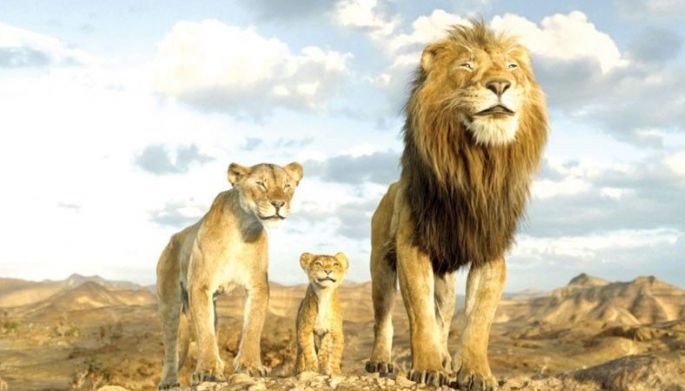Two lion brothers, bound by a family legacy until jealousy and betrayal tore them apart, form the concept of “Mufasa: The Lion King”, which is now back in Philippine cinemas after its initial December 19, 2024 release before the 50th Metro Manila Film Festival.
Many questioned whether a follow-up to the 2019 film was necessary, given its mixed reception among critics and audiences.
Adding to the skepticism was the involvement of Barry Jenkins, director of “Moonlight”, which won Best Picture at the Oscars in 2017. Some felt that directing a studio film for Disney was beneath Jenkins’ talents as a filmmaker.
Responding to these criticisms last April on X (formerly Twitter), Jenkins explained his decision: “For decades, children have sat in theaters all over the world experiencing collective grief for the first time, engaging Shakespeare for the first time, across aisles in a myriad of languages. [It’s a] most potent vessel for communal empathy.”
In essence, Jenkins wants to introduce a new generation of young moviegoers to a Shakespeare-inspired story, much like how the original 1994 animated film drew inspiration from Hamlet.
This two-hour tale showcases why Jenkins was drawn to the project, emphasizing Shakespearean elements in the origin stories of Mufasa (voiced by Aaron Pierre)and his villainous brother, Scar (Kelvin Harrison Jr.)
The story reveals that Mufasa was adopted by Taka’s (Scar’s original name) pride after being separated from his family in a devastating flood. While Taka and their mother Eshe (Thandiwe Newton) accept him, others in the pride, particularly King Obasi (Lennie James), see Mufasa as an outsider who doesn’t belong.
Despite this, Mufasa and Taka forge a strong brotherly bond as they grow up, guided by their loving mother Eshe.
Trouble arises when a group of dangerous white lions led by Kiros (Mads Mikkelsen) threaten their pride. Obasi entrusts Mufasa with protecting Taka as they flee, hoping they’ll find safety in Milele, a mythical land where Taka is destined to rule.
During their journey, they encounter young versions of Rafiki (Kagiso Lediga), Zazu (Preston Nyman), and Sarabi (Tiffany Boone), who is Mufasa’s future wife and the mother of Simba. These characters join them in their quest to discover whether Milele truly exists.
The plot’s trajectory is somewhat predictable, particularly the love triangle between Sarabi, Mufasa, and Taka. However, Jenkins’ emulation of a Shakespearean tale makes the narrative engaging, which showcases his distinctive touch.
The film also weaves in present-day scenes featuring Simba (Donald Glover) and Nala (Beyoncé Knowles-Carter), though their appearances are brief. Instead, their daughter Kiara (Blue Ivy Carter) takes center stage as the older Rafiki (John Kani) recounts Mufasa’s story to her, along with Timon and Pumbaa (Seth Rogen and Billy Eichner).
One significant improvement over the previous film is the expressiveness of the characters’ faces. In “Mufasa”, their emotions are much more discernible, resolving a major critique of the 2019 remake where the characters’ emotions often felt static.
The musical numbers, written by Lin-Manuel Miranda, are another highlight. With catchy songs reminiscent of “Hamilton”, the music elevates the story. Standout tracks include the viral “I Always Wanted a Brother” and “Tell Me It's You,” the latter evoking the spirit of “Can You Feel the Love Tonight.”
However, the film stumbles when it shifts to the present-day scenes. These segments feel like filler, with Timon and Pumbaa’s comedic complaints about being left out of Rafiki’s story eliciting more eye-rolls than laughs.
Kiara’s only dilemma is waiting for her parents to return after her mother gives birth to a new sibling — a far cry from the struggles her grandfather endured. Just as Simba and Nala reunite with their daughter, the present-day arc begins to show potential, and then the credits roll.
While Blue Ivy delivers a colorful voice performance as Kiara, the film struggles to draw a meaningful parallel between Kiara’s journey and her grandfather Mufasa’s legacy. Without a compelling way to bridge these arcs, the story could have benefited from focusing solely on the origins of Mufasa and Taka.
Despite skepticism about whether a follow-up was necessary, “Mufasa: The Lion King” manages to prove it is more than just a cash grab.
Even with its uneven execution of the present-day scenes, the film highlights Barry Jenkins’ thoughtful storytelling of introducing Shakespearean elements to a younger audience, combined with Lin-Manuel Miranda’s vibrant music. It’s a solid entry to the popular Disney franchise. Three stars out of five.


